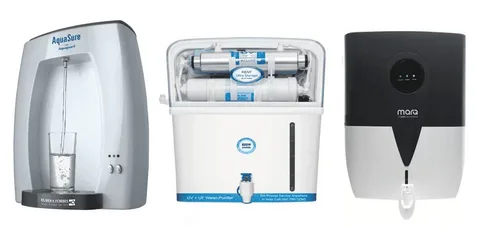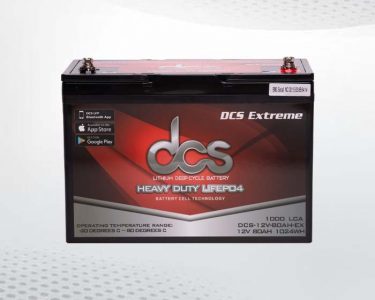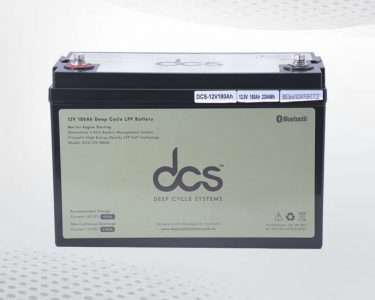In today’s fast-paced world, staying healthy and hydrated is more important than ever. We’re constantly surrounded by pollutants, contaminants, and other harmful substances that can affect our overall well-being. Water, which is essential for our survival, is often overlooked as a crucial aspect of our health. However, with the growing concerns about water quality, it’s no longer sufficient to drink tap water. The best solution is to invest in a water purifier that can provide us with clean, safe, and great-tasting water. But with so many options available in the market, choosing the right one can be overwhelming. In this ultimate guide, we’ll take you on a journey to discover the Best Water Purifier for your family, considering factors such as contaminants, certifications, and user-friendliness. From understanding the different types of water purification systems to comparing top brands and models, we’ll cover everything you need to know to make an informed decision and quench your thirst for wellness.
The importance of clean drinking water for your family’s health
Clean drinking water is the foundation of a healthy lifestyle, and it’s essential to ensure that your family is getting the best possible hydration. In today’s world, access to contaminated water is a growing concern, with pollutants and toxins lurking in even the seemingly purest of sources. In fact, the World Health Organization estimates that nearly 1 billion people globally rely on unprotected wells and springs, making them vulnerable to waterborne diseases.
But even in developed countries, the quality of tap water can be questionable. Chemicals, heavy metals, and pharmaceuticals can seep into the water supply, posing a significant threat to our health. The consequences of drinking contaminated water can be severe, ranging from mild digestive issues to serious long-term health problems.
That’s why investing in a high-quality water purifier is crucial for families who prioritize their health and well-being. By removing impurities and toxins from your drinking water, you can rest assured that your family is getting the purest, safest water possible. In this ultimate guide, we’ll explore the best water purifiers for your family, discussing the features, benefits, and drawbacks of each option to help you make an informed decision.
The dangers of contaminated water: what you need to know
When it comes to quenching your thirst for wellness, it’s crucial to start with the basics – and that begins with the water you drink. Unfortunately, the reality is that many of us are unwittingly consuming contaminated water, which can have devastating consequences for our health. In fact, it’s estimated that over 90% of the world’s population is exposed to contaminated water, with some sources containing harmful chemicals, heavy metals, and even bacteria.
The risks associated with contaminated water are far-reaching and can have a significant impact on our overall well-being. For instance, exposure to certain contaminants has been linked to an increased risk of cancer, kidney disease, and even neurological disorders. Furthermore, contaminated water can also cause gastrointestinal issues, such as diarrhea, vomiting, and stomach cramps, which can be especially concerning for young children, the elderly, and those with compromised immune systems.
Moreover, the dangers of contaminated water can be particularly severe in areas where the water supply is compromised, such as during natural disasters, floods, or droughts. In these situations, the risk of waterborne illnesses is significantly higher, making it essential to have a reliable and effective water purification system in place.
How to choose the right water purification technology for your needs
Consider Water Quality and Personal Preferences:
Highlight the importance of assessing the quality of tap water and personal preferences when selecting water purification technology. Mention that factors such as concerns about heavy metals and chemicals may lead to choosing a reverse osmosis system, while eco-friendliness may steer individuals towards UV purifiers or ceramic filters.
Assess Level of Water Purification Needed:
Discuss the importance of determining the level of water purification required. Emphasize the difference between systems that focus on removing bacteria, viruses, and parasites versus those aimed at improving taste and odour. Encourage individuals to choose a system that aligns with their specific needs.
Consider Maintenance Requirements:
Address the significance of considering the maintenance and upkeep of the water purifier. Mention that some systems require regular filter replacements, while others may need more frequent cleaning and maintenance. Advise individuals to choose a system that fits their lifestyle and is easy to maintain.
Top features to look for in a Water Filter Machine
When it comes to selecting the perfect Water Filter Machine for your family, it’s essential to prioritize features that guarantee clean, healthy, and great-tasting drinking water. The right features can make all the difference in ensuring your cleaner is effective in removing contaminants, improving water quality, and meeting your unique needs. In this section, we’ll delve into the top features to look for in a water purifier, helping you make an informed decision that’s tailored to your family’s specific requirements.
First and foremost, consider the type of contaminants you want to remove from your water. Do you need to eliminate heavy metals, pesticides, or pharmaceuticals? Look for a cleaner that uses advanced technologies such as reverse osmosis, activated carbon, or ultraviolet (UV) light to tackle these specific impurities. Next, think about the flow rate and capacity of the cleaner. If your family is large or has a high demand for clean water, you’ll want a purifier that can handle a high volume of water without compromising on performance.
In this section, we’ll dive deeper into the importance of testing your water purifier’s effectiveness and provide you with practical tips and advice on how to do so. From choosing the right testing methods to interpreting the results, we’ll cover everything you need to know to ensure your water purifier is providing the best possible protection for your family.
Another crucial feature to consider is the cleaner’s maintenance requirements. Some cleaners may require frequent filter replacements, while others may require more low maintenance. Think about your lifestyle and schedule, and choose a cleaner that fits your needs. Additionally, the certification and testing standards of the cleaner, such as NSF International or the International Association of Plumbing and Mechanical Officials (IAPMO), should be considered. These certifications ensure that the cleaner has met rigorous standards for performance, safety, and quality.
Best water purification systems for different types of water sources
Municipal Water Supply:
Highlight these systems as ideal solutions for those relying on municipal water supplies. Explain that they are designed to remove common contaminants such as chlorine, lead, and heavy metals, providing clean and refreshing-tasting water.
Rainwater Collection System:
Emphasize the necessity of a rainwater harvesting system for those collecting rainwater. Mention that these systems typically include a first flush device, which removes contaminants and debris from the collected water, ensuring a safe and sanitary drinking water supply.
How to maintain and replace filters in your Water Filter for Home
The importance of regular maintenance and filter replacement cannot be overstated when it comes to ensuring the longevity and effectiveness of your Water Filter for Home. Unfortunately, many homeowners overlook this crucial aspect, which can lead to compromised water quality and even the complete breakdown of their cleaners. To avoid these issues, it’s essential to familiarize yourself with the maintenance schedule and guidelines provided by the manufacturer.
Typically, water purifiers require filter replacements every 6-12 months, depending on the type of filter and the level of contaminants present in your drinking water. However, some advanced models may have more complex filtration systems that require more frequent maintenance. It’s crucial to follow the manufacturer’s instructions to ensure you’re replacing the correct filters and not compromising the overall performance of your cleaner.
In addition to filter replacement, regular cleaning and descaling of the cleaner’s internal components is also vital. This will help prevent the buildup of mineral deposits and debris that can affect the flow of water and the overall efficiency of the device. By committing to regular maintenance and filter replacement, you can ensure that your water purifier continues to provide you with clean, healthy drinking water for years to come.
The importance of testing your water purifier’s effectiveness
As you’ve made the conscious decision to invest in a water purifier for your family, it’s crucial to ensure that your chosen device is doing its job effectively. After all, you want to be confident that the water your loved ones are drinking, cooking, and bathing with is not only clean but also free from harmful contaminants. Testing your water purifier’s effectiveness is a vital step in the process, as it allows you to verify its performance and identify any potential issues.
Think of it like this: just as you would test your car’s performance before hitting the road, you need to test your water purifier to ensure it’s working as intended. This may involve conducting regular water quality tests, monitoring the device’s performance over time, and checking for any signs of wear and tear. By doing so, you’ll be able to:
In this section, we’ll dive deeper into the importance of testing your water purifier’s effectiveness and provide you with practical tips and advice on how to do so. From choosing the right testing methods to interpreting the results, we’ll cover everything you need to know to ensure your water purifier is providing the best possible protection for your family.
Conclusion
As we conclude our ultimate guide to choosing the best water purifier for your family, we hope that you now feel empowered to make an informed decision that will quench your thirst for wellness. With the vast array of options available in the market, it can be overwhelming to select the right one for your family’s needs. However, by following the tips and recommendations outlined in this guide, you can rest assured that you’re taking the first step towards providing your loved ones with clean, healthy water that’s free from contaminants. Remember, the health of your family is in your hands, and with the right water purifier, you can give them the best possible start in life.
FAQs
What are the different types of best water purifiers available?
There are various types of water purifiers, including activated carbon filters, reverse osmosis (RO) systems, ultraviolet (UV) purifiers, and gravity-based purifiers. Each type utilizes different mechanisms to remove impurities from water, so it’s essential to understand their functionalities and limitations before making a decision.
How can I ensure that the water purifier I choose provides safe and clean drinking water?
Look for water purifiers that are certified by reputable organizations such as NSF International or the Water Quality Association (WQA). These certifications ensure that the purifier meets specific performance standards and effectively removes contaminants from water. Additionally, regularly maintain and service your water purifier according to the manufacturer’s recommendations to ensure optimal performance and water quality for your family.
| Related Business Listings |
| Contact Directory |
| Local Business Profiles |







